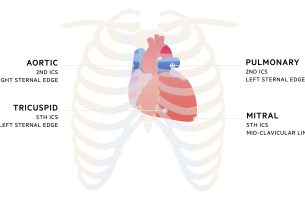What is a hospital consultant’s secretary? Hospital consultants have a secretary to help them. It’s important to know the name, telephone number and email address of your consultant’s secretary. This is because consultants are very busy, with responsibilities for teaching, research and management. This is as well as looking after you of course, their main task. Secretaries […]
Read MoreWhat does the heart do? (7 facts) In this article, we will describe what does the heart do (7 facts). We hope it is useful. 1. The heart is a muscular organ that pumps blood throughout the body It is located in the chest cavity, to the left of the sternum. The heart is susceptible […]
Read MoreCan I email my hospital consultant? No, not usually. Sorry. This is mainly because hospitals have quite strict rules about direct email discussions between patients and consultants (in fact, all doctors). So. Can I email my hospital consultant? As we say, no, not usually. This is partly because they can never be certain that the person emailing […]
Read MoreWorking as a psychiatrist – 5 Pros and 5 Cons Here are five pros and five cons of working in psychiatry. 5 Pros 1. Variety From dealing with extremely acute patients in the community as part of the crisis team, to following patients for years in Forensics, there is a great amount of variety in […]
Read MoreWhat are the different types of NHS hospital? There are 6 main types, all with different roles but working together. We will now go through the 6 different types of NHS hospital. Regional teaching hospitals Teaching hospitals are usually large and based in or near the centre of a region of the UK – usually […]
Read MoreWho gets prioritised (triaged) in A&E, and how? All A&E departments use a priority system – called ‘triage’ – where the most seriously ill patients are seen first. This is usually done by nurses. So. How are patients prioritised (triaged) in A&E? In A&E, you will initially be seen by specialist nurses who are trained to […]
Read MoreDonald Trump’s rosacea – orange fake tan or fake nose? Donald Trump – 45th president of the United States (2017 -2021), and 47th President (2025+) – has rosacea, a reddening skin condition that he takes antibiotics to combat. Makeup artists have also speculated that Trump’s facial colouring suggests he uses self-tanner or a tanning bed […]
Read MoreWhat’s the difference between urgent and emergency (A&E) care? Do you know the difference between urgent and emergency (A&E) care? If not, read on They are different. Urgent care means you need to be seen soon. Emergency care means you need to be seen now. Also urgent care does not always have to occur at […]
Read More10 anxiety and panic attack facts We will describe 10 facts about anxiety and panic attacks; focusing on its symptoms, causes, and treatment. Let’s start with the basics. We all have stress and fear but most can can control them. This is not anxiety, and it is not a disease. True (clinical) anxiety is defined […]
Read More10 depression facts In this article we will describe 10 facts for patients about depression. Key Points Depression is a very common mental disorder – 15% of adults suffer from significant depression, and more women than men Characterised by sadness severe enough or persistent enough to interfere with function with decreased interest or pleasure in […]
Read More







